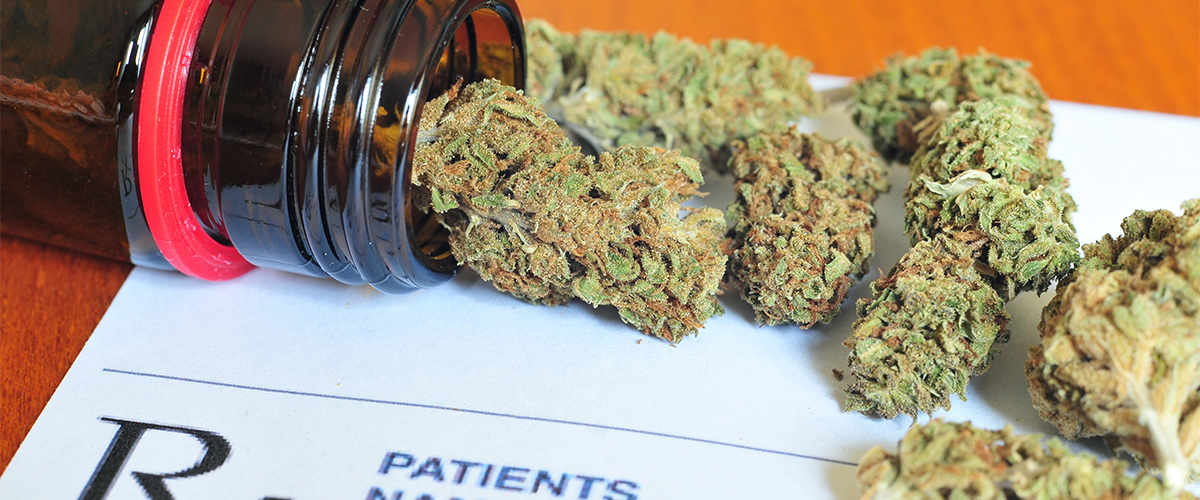Research examining medical marijuana in Illinois shows patients replacing prescription medications with cannabis.
A new study out of Illinois suggests that medical marijuana can complement and at times even replace traditional pharmaceutical treatments.
Conducted by researchers from DePaul and Rush universities, the study conducted open-ended interviews with medical marijuana patients in Illinois and then studied the data collected to determine patterns and themes present in the use of medical marijuana patients in the state.
“There’s power in people telling their stories in a way you can’t get in a survey,” the study’s lead author Douglas Bruce told the Chicago Tribune. “It’s important to do qualitative research to understand how people are using cannabis, then figure out how to measure it.”
The State’s First Study of Its Kind
The introductory study, the first of its kind undertaken in Illinois, had 30 participants with a mean age of 44 years old who used medical marijuana regularly to treat their conditions. All the participants suffer from conditions covered by the state’s medical marijuana program.
Those conditions include:
- Rheumatoid arthritis
- Crohn’s disease
- Spinal cord injury/disease
- Cancer
Although each participant’s routine was unique, patient medical marijuana use began to fall into one of three categories: alternatives to using prescription or over-the-counter medications; complementary use with prescription medications; and a means for tapering off prescription medications.
Learn more about medical marijuana vs. prescription medications HERE.
In the published study, the authors write, “Motives reported for reducing or eliminating prescription medications included concerns regarding toxicity, dependence, and tolerance, and perceptions that [medical cannabis] improves management of certain symptoms and has quicker action and longer lasting effects.”
This new study aligns with previous research on medical marijuana and its ability to reduce dependence on prescription medications. That study similarly concluded “Legal access to cannabis may reduce the use of multiple classes of dangerous prescription medications in certain patient populations… [A] shift from prescriptions for other scheduled drugs to cannabis may result in less frequent interactions with our conventional healthcare system and potentially improved patient health.”
Earlier Studies Reinforced
These findings reinforce a body of research already indicating that legal access to cannabis reduces prescription drug use. In one study, access to legal medical marijuana was shown to cause a dramatic decrease in prescriptions written under Medicaid, with the most significant drop found in pain management prescriptions. Researchers from the Bastyr University Research Institute found earlier this year that patients diagnosed with pain, anxiety, and depression are increasingly using cannabis in place of prescription drugs. Results like these support what researchers saw in Illinois among patients there. As access to medical marijuana increases, the reliance on prescriptions could be reduced.
This news comes at a time when America is struggling with an opioid epidemic that many experts say was exacerbated by excessive prescribing of painkillers. Medical marijuana may be the solution to ending this crisis. Research already shows that medical marijuana has led to fewer opioid deaths in states where it has been legalized.
According to the Chicago Tribune, about 25,000 patients with qualifying conditions have enrolled in the medical marijuana program in Illinois, and in August, the most recent month’s data available, those patients spent about $8 million in medical marijuana products. These costs come out of the patient’s pocket, saving insurance companies millions a year.
Continue Following These Developments
In the end, the new study from DePaul and Rush universities demonstrates that medical marijuana is being used in Illinois as intended. Patients there are effectively adding cannabis products to their treatments as an adjunct – or even in place of – prescription medications.
Follow our news feed to stay up-to-date with developments from the cannabis industry, including new research, opinion polls, and changes in policy.






